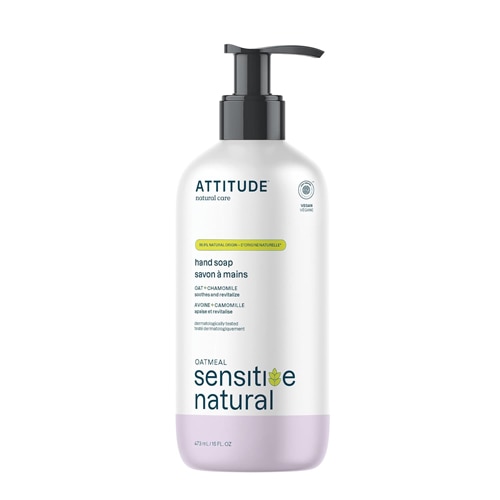As windows to the soul go, skin is in the running. The mind and the skin are inextricably intertwined, an idea that’s the basis for a new field called "psychodermatology.” It proposes that many skin disorders are rooted in the psyche, which under stress, expresses itself through your skin.
While everyone experiences
stress, and a little stress is actually healthy (think enhanced mental clarity),
chronic stress, which many of us have been living with during the
pandemic, can have serious health consequences. Stress takes its toll on your mind, body and soul, so it should not be a surprise that it would also take a toll on your face and skin.

Here’s how it works. Underneath the surface of the skin are nerve endings, nerves, glands, organs and blood vessels. The largest organ in the body in fact, skin serves as a protective shield against heat, light, injury and infection. But skin is a two-way street, so to speak. As your emotions play out neurologically, they often express themselves through the skin. Just as stress can be expressed through gastrointestinal symptoms, increased anxiety or hypertension, it can also manifest as redness, breakouts, rashes, wrinkles and dryness.
Stress and Skin: 5 Potential Effects
Acne
Stress skin is real. Under stress, your body produces more of the hormone
cortisol, which in turn triggers production of another hormone called corticotrophin-releasing hormone (CRH). CRH can stimulate your hair follicles to release more oils, causing clogged pores and acne. Excessive oil production by these glands can clog your pores and lead to
acne. A surprising number of problematic skin conditions are directly related to an excess of inflammatory chemicals.
Under eye bags
Too little sleep can lead to poor mood regulation, a precursor to stress. A lack of sleep also takes its toll on your skin, increasing signs of aging, such as
fine lines, reduced elasticity and uneven pigmentation. This loss of skin elasticity may also manifest as bags under your eyes. Sometimes the space below your eyes can accumulate extra fluid, making the under-eye area appear puffy or swollen.
Stress can also be the culprit behind
dark circles, causing the fragile capillaries around the eyes to break or leak blood. The blood spreads out under the skin, then oxidizes to form a dark hued circle.
Wrinkles
Constant stress may also be behind premature wrinkles. When cortisol is on chronic drip, it inhibits the production of elastin and collagen, the two building blocks of supple, youthful skin. If stores of collagen and elastin become depleted, your skin gets thinner and less elastic. Also, if you furrow your brow, or tend to a grimace—all expressions of a stressed state of mind—these repeated facial patterns can also contribute to the formation of wrinkles.
Rashes
Stress tends to impact your entire body, including weakening your
immune system. A compromised immune system can lead to an imbalance of bacteria in your GI tract and on your skin called dysbiosis. When this imbalance occurs topically, it can lead to redness or a rash.
Stress also aggravates inflamed skin, such as psoriasis,
eczema and contact dermatitis. Your skin on stress suffers somewhat from a lack of attention. Blood flows to the areas of your body that are under immediate impact of stress, such as your brain or internal organs. There is a reduced blood flow to your skin, which can cause it to flare up and produce undesired bumps, blemishes or rashes.
Dry skin
The outer layer of your skin, the stratum corneum, contains protein and lipids that play a critical role in keeping your skin cells hydrated. If your stratum corneum isn’t working the way it should, your skin can become either excessively oily or dry and itchy. Stress triggers your fight-or-flight response to kick in, a surge of adrenaline and cortisol. Increased adrenaline causes you to sweat more, which tends to lead to dehydration. If you don’t replenish, dehydration can cause
dry skin.
Reducing Stress for Better Skin
Although you can’t eradicate stress, you can address how you deal with stressors. Here are three tips for soothing stressed skin:
Meditate
Meditating or a slow yoga practice triggers the relaxation response, which decreases cortisol and inflammation. If you practice consistently, your skin may very well start to glow, both from your newfound sense of equilibrium as well as a stronger skin barrier.
Antioxidants
Eating a few healthy servings of
antioxidants a day—think fresh fruits and vegetables, green tea, dark chocolate, nuts and seeds, and even coffee— will help cultivate a clearer, calmer, brighter complexion.
Exercise
A good workout not only creates antioxidants, it also lowers cortisol. And the increase in circulation that
exercise provides does wonders for your skin. By increasing blood flow, exercise helps nourish skin cells and keep them vital. Plus, a healthy blood flow also helps carry away waste products, including free radicals, from working cells.
 Here’s how it works. Underneath the surface of the skin are nerve endings, nerves, glands, organs and blood vessels. The largest organ in the body in fact, skin serves as a protective shield against heat, light, injury and infection. But skin is a two-way street, so to speak. As your emotions play out neurologically, they often express themselves through the skin. Just as stress can be expressed through gastrointestinal symptoms, increased anxiety or hypertension, it can also manifest as redness, breakouts, rashes, wrinkles and dryness.
Here’s how it works. Underneath the surface of the skin are nerve endings, nerves, glands, organs and blood vessels. The largest organ in the body in fact, skin serves as a protective shield against heat, light, injury and infection. But skin is a two-way street, so to speak. As your emotions play out neurologically, they often express themselves through the skin. Just as stress can be expressed through gastrointestinal symptoms, increased anxiety or hypertension, it can also manifest as redness, breakouts, rashes, wrinkles and dryness.



